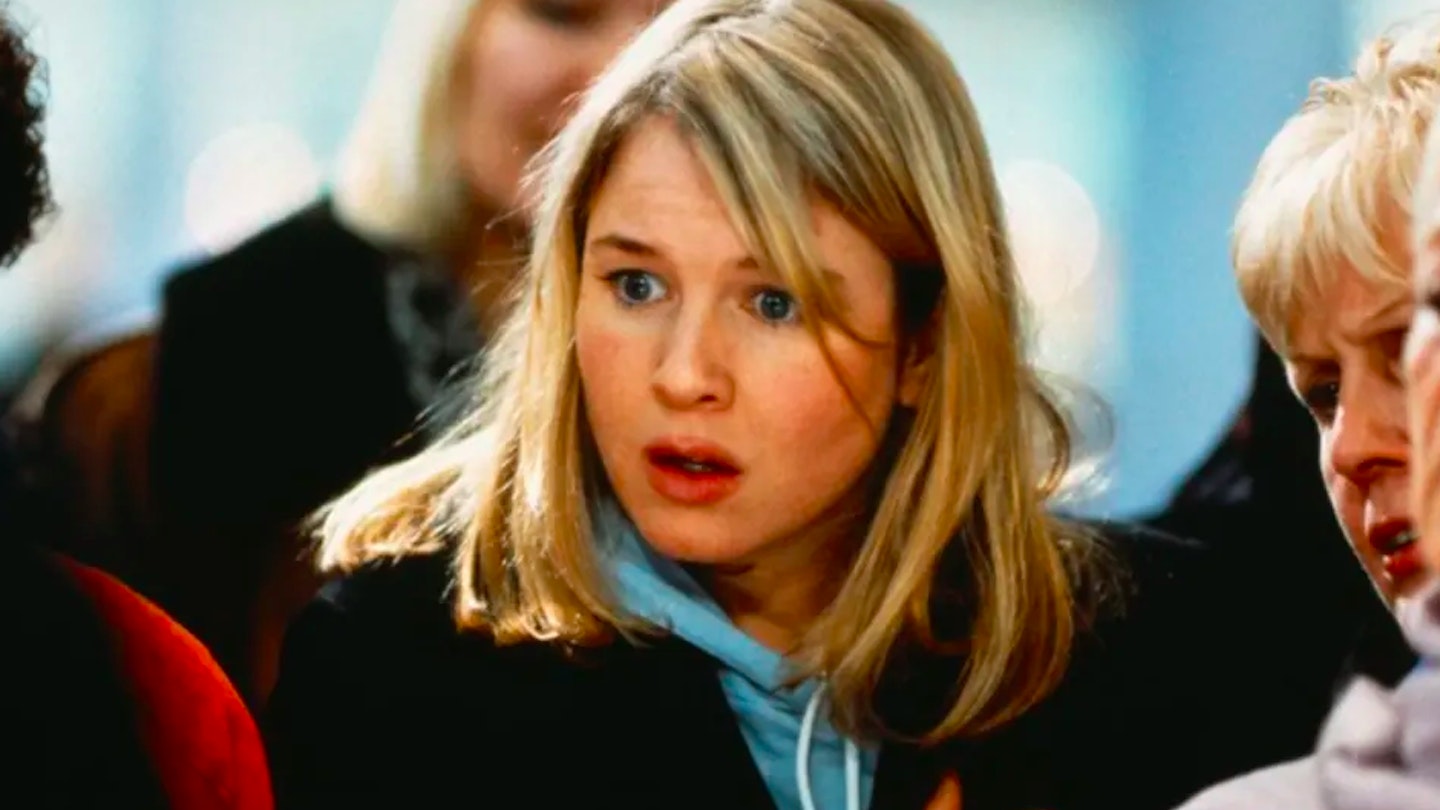Trigger warning: eating disorder content.
Bridget Jones is back, with reports that a fourth movie will begin filming in London in May. Renee Zellweger is already looking for somewhere to live while she films. I’m just as excited as everyone else. I love nothing more than settling down to a good rom com – and Bridget Jones is a classic for my generation. But I don’t think I’ll ever shake how the first two films made me feel, and the impact they had on my self-esteem.
I used to feel a hot flush of panic and disgust wash over me when I saw Bridget Jones’ weight flash up on the screen - it was almost a stone less than mine, and I was 13. Riddled with shame and embarrassment, I silently vowed to stick to my diet - Atkins, at the time - better. No carbs for me.
Because, how am I supposed to feel happy and comfortable existing in a body that weighs a stone more than Bridget’s, when she is openly disgusted by herself and ridiculed for her weight throughout the entire film (don’t forget the ‘I thought you said she was thin’ line)? Not to mention the media’s obsession over Renee Zellweger’s infamous three stone weight gain in order to play her.
When I posted about this on my Instagram I was inundated with comments from women who explained they had felt similarly. It clearly resonates with a lot of people who grew up on the film as I did it.
According to this movie, 9st 7 was not acceptable. At one point, Bridget writes in her diary: ‘9st 4 (terrifying slide into obesity - why? Why?)’. She takes us on a journey of all-consuming weight loss to hit ‘ideal weight’ 8st 7, and when she finally reaches it, she calls it ‘a miracle’. I’d like to point out that 9st 4, never mind 8st 7, is very slim - someone on Twitter calculated that Bridget would have come out on the lower end of normal on the BMI scale (though using BMI measurements is problematic in itself, but I’ll save that for another day).
Now, thankfully, we’re waking up to the idea that thinner does not equal better and thinness is not the best thing that we can achieve. Yet she is portrayed as a jolly, plump character who is destined to a life of documenting every single calorie consumed. It's something many of us, young, vulnerable adults in the process of learning that we live in a society where thinness is valued above all else, internalised and believed without question, making it our eternal mission to avoid such a fate.
This depiction of Bridget is ludicrous and dangerous in equal measure, and I can’t believe we didn’t see it at the time. I guess we were just too entrenched in diet culture.
But now, thankfully, we’re waking up to the idea that thinner does not equal better and thinness is not the best thing that we can achieve. So let’s tackle why the film’s heavy focus on weight was so problematic.
First up, it’s not our life’s purpose to lose weight. That’s diet culture talking. Nor should weight be one of our defining features. No matter what we weigh, we are still beautiful, valid and worthy of love. And you know what? Being fat isn’t the worst thing that can happen to us - some bodies are fat, and that’s ok. Societal conditioning has led us to believe it’s not, but that’s all it is: conditioning.
The writers should never have attached numbers to Bridget’s view of herself as ‘fat’ - this was hugely triggering. Having her weight documented to the pound - along with its fluctuations, both big and small - is incredibly unhealthy behaviour and something that a lot of the eating disorder community have experienced. Seeing that played out on screen only serves to normalise and perpetuate the behaviour. It certainly inspired me to start keeping a ‘weight diary’ - I obsessively chronicled my weight daily until I finally entered a treatment centre for anorexia.
I’m not saying that the Bridget Jones film gave me an eating disorder- I was already fairly messed up around food and weight and it was going to happen anyway, I’m pretty sure my destiny was set in that sense - but it definitely didn’t help. It didn’t reassure me that how I look wasn’t the sole determiner of my worth; that getting on the scales every day was unhealthy or that obsessing over my weight wasn’t a productive use of my time.
It fed into weight-related pressures not just for me, but for many young women who believed the film was an accurate reflection of what society needs from us. I’m sad that this happened, but I have hope that the world is changing – and that the new Bridget Jones film won’t include any of this damaging messaging as film-makers (like the rest of us) are more enlightened and educated on this sort of thing now.
So yes, I’m looking forward to the next instalment of Bridget, Mark Darcy and Daniel Cleaver (yes, even Hugh Grant is rumoured to be making a comeback after being killed off in the last film), I just hope everyone working on this one are more careful when it comes to handling delicate topics around weight, so no one ever has to be subjected to lines like this again. 'Unexpectedly repulsive notion: never-before faced reality of lard splurging from bottoms and thighs under skin. Must return to calorie-counting tomorrow.'
Chick flicks should be fun, not leave its young, predominantly female, audience with issues.
Follow Alex on Instragram @alexlight_ldn
